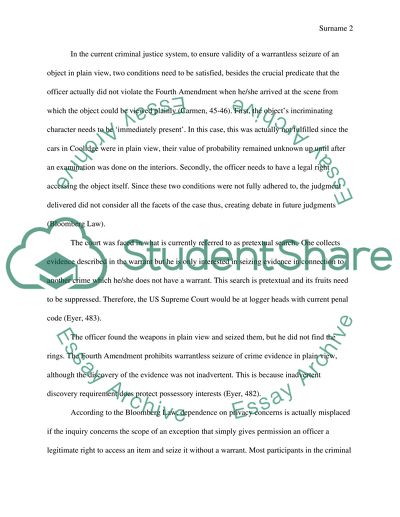Constitutional Law: Horton v. California Assignment. Retrieved from https://studentshare.org/law/1625510-constitutional-law-horton-v-california
Constitutional Law: Horton V. California Assignment. https://studentshare.org/law/1625510-constitutional-law-horton-v-california.


